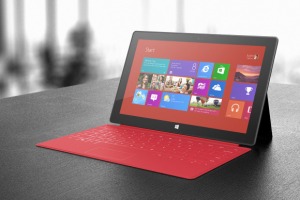Surface RT = another Microsoft epic fail
July 30, 2013
 Perhaps you know by now about the nearly billion dollar Microsoft failure known as Surface RT. Yup, almost a year since it was introduced, Windows Surface RT has become a dog that no one wants. So much so that even Asus, a prominent computer device manufacturer, recently announced that it was throwing in the towel on Windows Surface RT.
Perhaps you know by now about the nearly billion dollar Microsoft failure known as Surface RT. Yup, almost a year since it was introduced, Windows Surface RT has become a dog that no one wants. So much so that even Asus, a prominent computer device manufacturer, recently announced that it was throwing in the towel on Windows Surface RT.
The explanations as to why Surface RT failed are varied – ranging from the design of Windows 8 to the inability of Surface RT to run regular Windows programs. Accordingly, the pundits have been all over the place with the aforementioned explanations. Also accordingly, and to the credit of the pundits, all of the reasons why RT failed have been right – except for one. The one critical mistake Microsoft made was to try to push users into the “post-PC” zone. The “post-PC” zone, much like “The Twilight Zone,” only exists in the minds of people that don’t want to deal with reality. In the world of reality, there is no “post-PC” zone and there is no “one size fits all” when it comes to computing.
Microsoft, however, was not alone in this blunder as many of the pundits agreed with the tech giant in this assumption. Indeed, even in light of Microsoft’s massive failure, there are pundits who still believe that a “post-PC” era is occurring. And Microsoft is not the only tech giant who is now pushing the “post-PC” era as Canonical, Ubuntu’s parent company, is also beginning to steer into that zone as well. Incidentally, IMO, this is a big mistake that Canonical is making, given the issues that Microsoft is experiencing with Surface RT.
In any case, Microsoft now has a lot of inventory in terms of unsold Surface RT tablets on its hands. Which, I expect that there are going to be some deeply discounted or even free RT tablets going out the door as the tech giant tries to unload them. Hopefully, in the process of unloading all those RT tablets, Microsoft will see the error of its ways – because again there is no “post-PC” era.
How do you feel about Surface RT in general? And are you going to get a Surface RT device now that Microsoft has begun slashing prices on them? Leave a comment.
News sources: Mashable, Windows IT Pro and ZDNet.
Photo source: PCWorld.